When the cost of living forces you out, the road is the last place left to go.
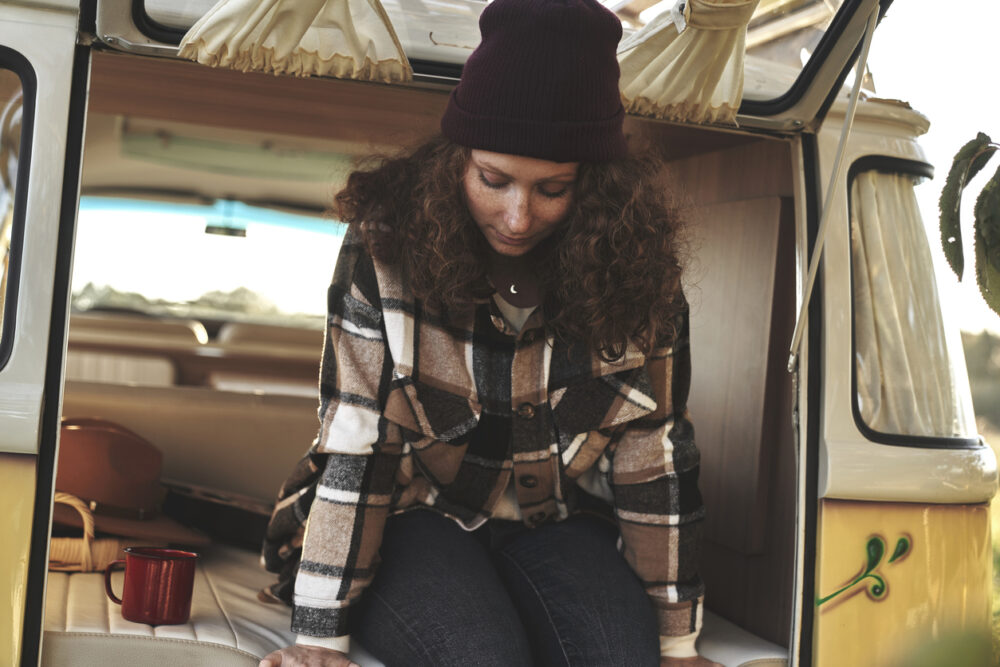
Van life used to be sold like a dream: sunsets, open highways, total freedom. And for a few people, maybe it still is. But for more and more, it’s not about chasing adventure—it’s about survival. Skyrocketing rents, low wages, medical bills, eviction notices. The reality is, a lot of people living in vans, RVs, and cars didn’t choose it because they wanted to simplify. They chose it because it was the only thing left.
It’s easy to romanticize the road when you still have a stable address to come back to. It’s different when your vehicle is the only thing between you and homelessness. Van life isn’t always about liberation. It’s often about loss, hustle, exhaustion, and making a home out of whatever you can afford. These first six signs show how survival—not freedom—became the real engine behind so many lives lived on wheels.
1. Repairs become emergencies you can’t always afford.
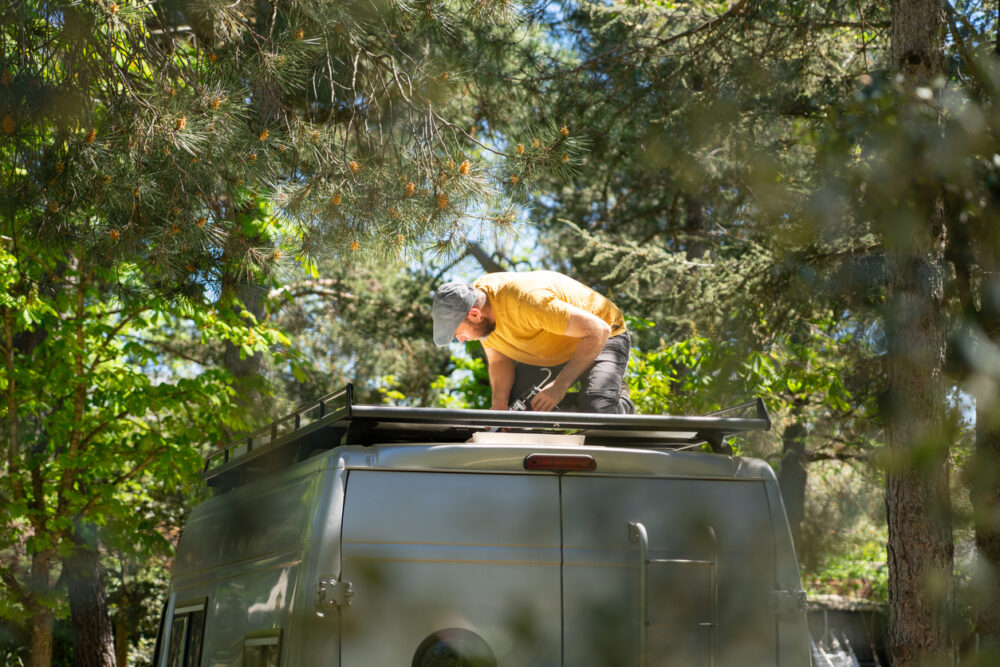
When your home has an engine, everything changes. A breakdown isn’t just inconvenient—it’s a housing crisis. Flat tires, dead batteries, busted transmissions—every repair comes with a price tag that feels like life or death. When you live in a van, you can’t just “deal with it later.” If the vehicle doesn’t move, neither do you. Daniel J. Schwarz writes on Medium that for many van lifers, the fear of unexpected mechanical failures—and the financial strain they cause—is one of the biggest challenges of life on the road. Some are forced to sleep in broken vehicles while trying to save up for parts. Others end up stranded in towns they never planned to stay in. And there’s no landlord to call.
No safety net. Just the hope that you can find a cheap fix before someone tows your entire life away. What looks like freedom on Instagram often hides the fear of everything breaking down—and not having a way to put it back together.
2. Finding a safe place to park is a daily battle.
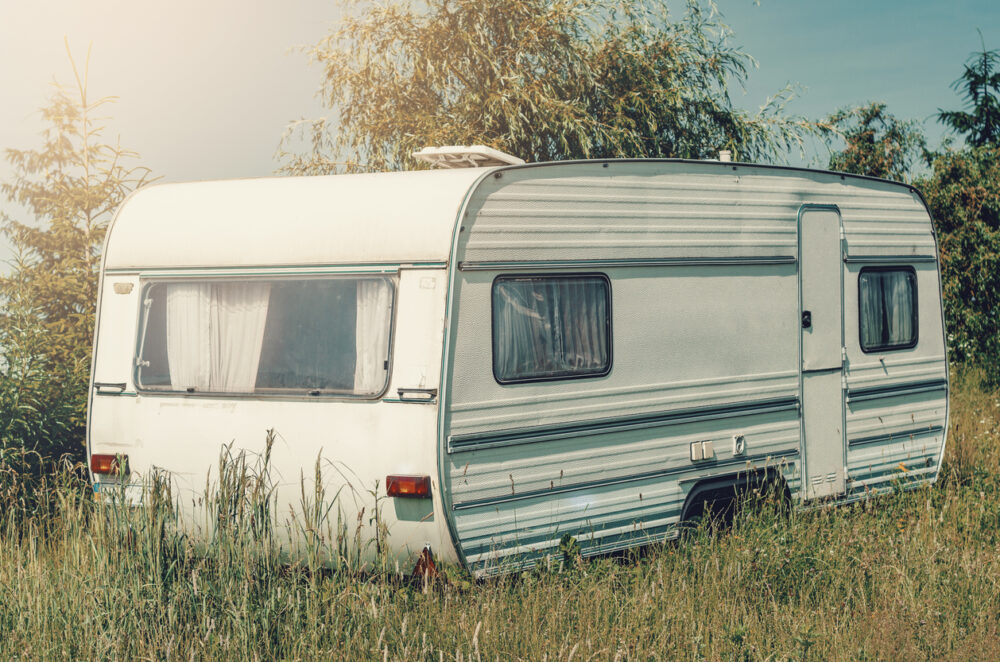
It sounds simple—just pull over somewhere beautiful and sleep. But reality hits harder. Most cities have laws against sleeping in vehicles. Store parking lots, hidden side streets, remote campsites—van dwellers rotate through them, trying not to overstay and get noticed. Being “stealth” isn’t just a strategy. It’s survival.
Cops knock on windows in the middle of the night. Businesses post signs banning overnight parking. Locals call in suspicious vehicles. Writers at The Vanual explain that every night on the road involves carefully choosing a parking spot to avoid fines, police encounters, or unsafe situations. Safety is never guaranteed, only managed. The stress of constantly relocating wears down even the most resourceful. The open road looks romantic until you realize there’s no place that truly welcomes you—and no home base to fall back on when exhaustion sets in.
3. Basic hygiene becomes a logistical nightmare.

When you don’t have a bathroom or shower built into your living space, staying clean turns into a full-time job. Public restrooms, gas station sinks, gym memberships, campground showers—none of it is guaranteed, and none of it feels particularly secure. If you’re lucky, you patch together a routine. If not, you go days feeling grimy and exposed.
The effort it takes just to wash your face or brush your teeth can wear you down fast. Every shower becomes a mini-mission that costs money, time, and sometimes dignity.
Carmen Anthonj and others write in ScienceDirect that limited access to hygiene can seriously impact mental health, physical well-being, and feelings of dignity for people experiencing housing insecurity. Van life doesn’t automatically mean carefree mornings by the beach—it often means rationing your baby wipes because there’s no other option.
4. Weather controls your life in ways you can’t escape.

When your house is made of metal and thin insulation, the weather isn’t just something you check on your phone—it’s a daily force you have to outsmart. Blistering heat turns your van into an oven. Freezing nights make it feel like you’re camping in a tin can. Storms mean leaks, flooding, or being trapped somewhere unsafe.
You can’t just crank the AC or turn up the heat without burning through gas, draining your battery, or risking carbon monoxide poisoning. Extreme weather forces constant movement, seeking shade, higher elevation, or safer ground. It’s exhausting living on nature’s terms, especially when every shift in temperature feels like a direct threat to your comfort, your gear, and sometimes your survival. The freedom of the open road looks different when you’re sweating through your clothes or shivering under every blanket you own.
5. Getting sick is a thousand times scarier on the road.
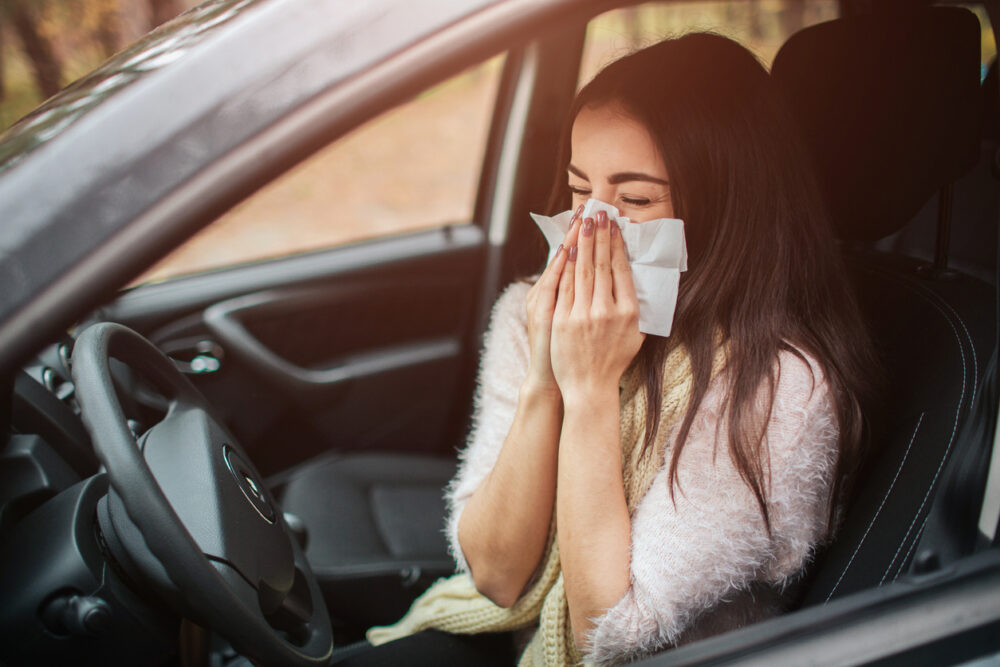
A sore throat or a fever might be annoying in a regular home, but when you live in a vehicle, it can spiral into something dangerous fast. There’s no real bed to collapse into, no stocked kitchen for easy meals, no climate control to keep you comfortable. And definitely no easy way to call for help if things get worse. Getting sick means trying to heal while still needing to move, still needing to find bathrooms, still needing to stay alert to your surroundings. Simple things like rest and hydration become logistical puzzles.
Access to urgent care might depend on where you’re parked—or how far you are from a town that won’t hassle you for being there. On the road, there’s no such thing as being able to fully let your guard down, even when your body is begging you to.
6. Income becomes unstable no matter how hard you work.
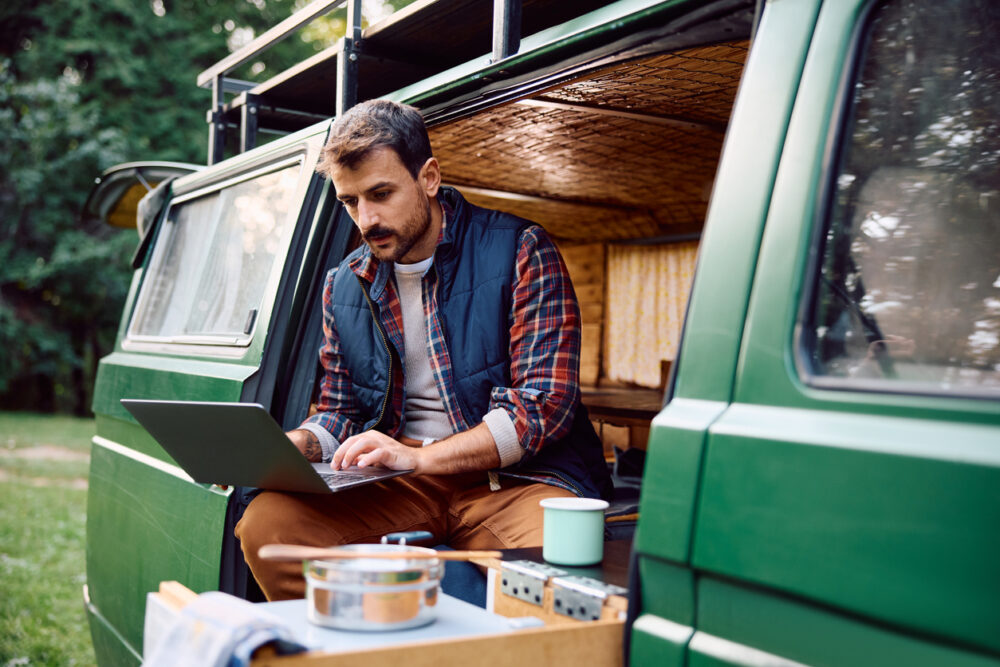
It’s easy to imagine van life as a series of scenic work-from-anywhere setups with your laptop perched next to a mountain view. Reality usually looks more like juggling odd jobs, unreliable Wi-Fi, and constant hustle just to scrape by.
Gig work, temp jobs, under-the-table cash—van lifers often patch together survival with whatever work they can find. And if your van needs repairs, if gas prices spike, if a gig falls through—you’re one unexpected hit away from being completely stranded. The “low-cost” living dream doesn’t always account for how expensive constant movement becomes. Financial security is fragile when your entire life can be derailed by one bad month. You’re not living the dream. You’re grinding just as hard, but without the safety net of walls and a steady paycheck to catch you when things slip.
7. Access to healthy food becomes a constant uphill battle.
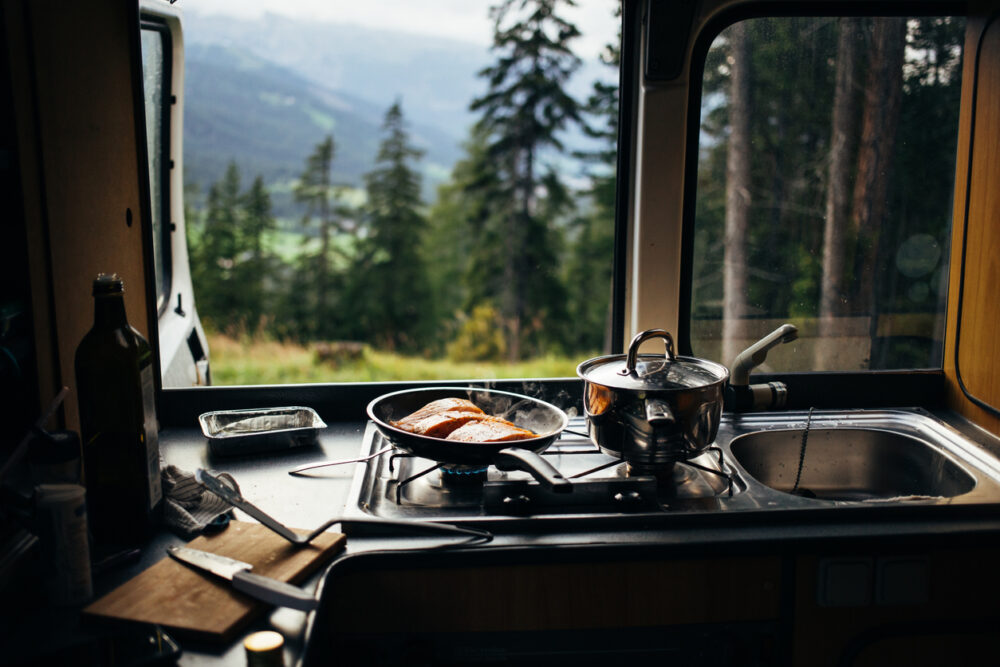
Eating well sounds easy until you realize how much it depends on having a full kitchen, reliable refrigeration, and easy access to affordable grocery stores. When you live in a van, you’re often stuck choosing between what’s cheap, what won’t spoil, and what you can actually cook on a single burner or camp stove. Spoiler: it’s rarely fresh produce and lean protein.
Fast food, gas station snacks, and shelf-stable junk quickly become survival staples. Even when you want to eat better, food deserts and budget limits make it tough. Planning meals turns into a mental math problem—how long will this last without a fridge? How much water does this meal need? How fast can I cook it without draining my battery or propane? Eating healthy on the road isn’t impossible, but it’s a whole lot harder than the Pinterest meal prep boards make it look.
8. Isolation creeps in even when you’re surrounded by beauty.
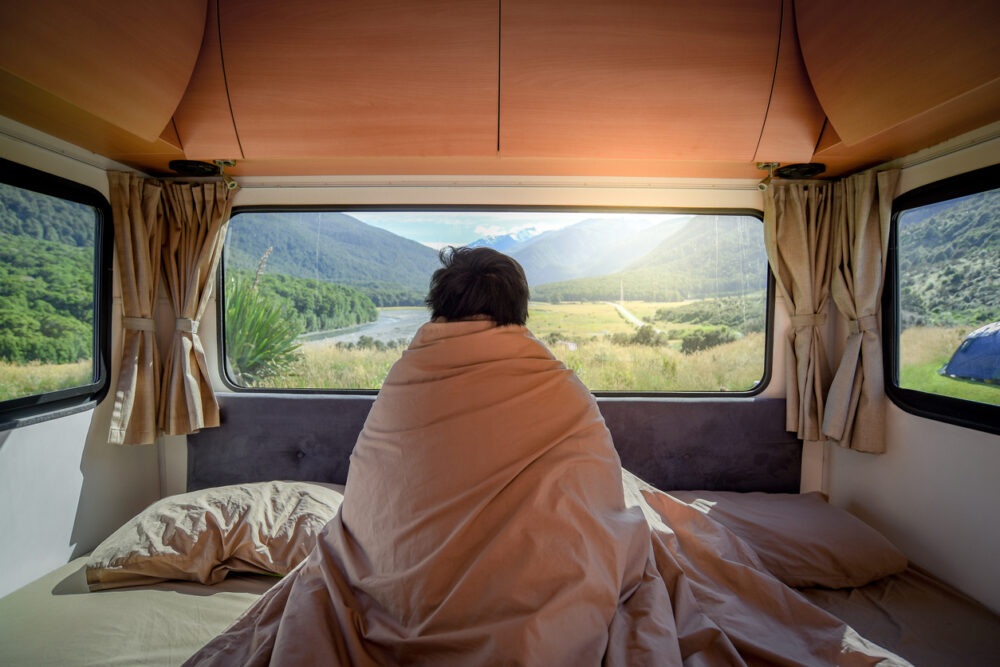
Van life gets painted as a peaceful, solitary journey. And sure, sometimes it is. But a lot of the time, isolation cuts deeper than anyone expects. Moving constantly makes it hard to build real friendships or community. Phone calls and social media can only fill so much of the gap when you’re parked alone on a forgotten road.
The freedom to go anywhere also means you’re rarely somewhere long enough to feel grounded. Holidays get lonely. Bad days hit harder without anyone physically nearby.
Even beautiful landscapes start to feel empty when there’s no one to share them with. Real van lifers know the view outside your windshield can be breathtaking, but it doesn’t always make up for the ache of going days—or weeks—without a real conversation.
9. Constant vigilance becomes a way of life.
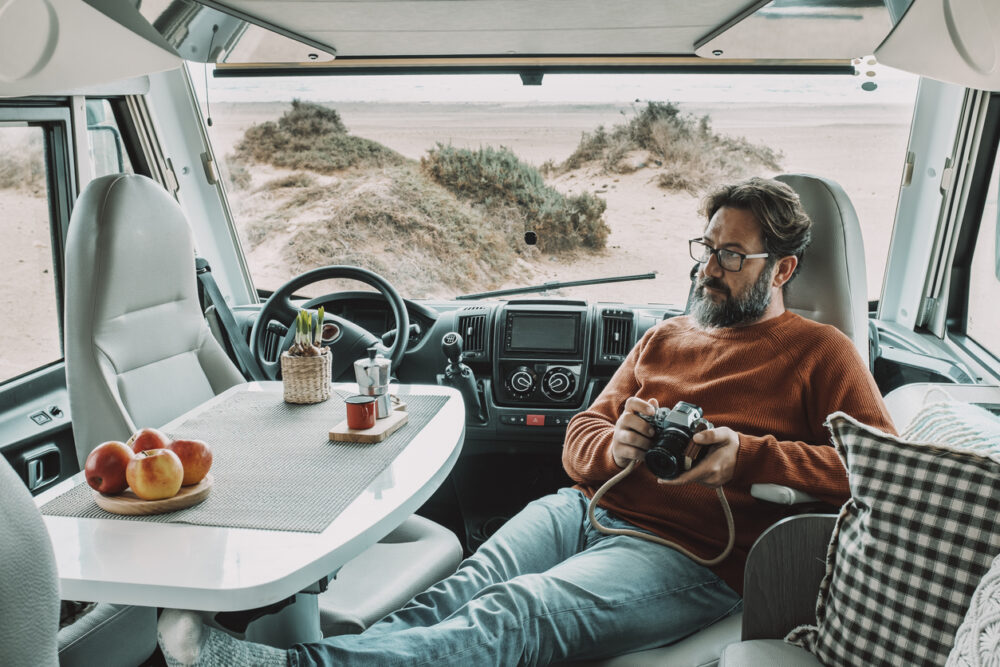
When your home is mobile, unsecured, and often parked in unfamiliar places, you live in a permanent state of low-grade alertness. Every knock on the door, every flash of headlights, every suspicious passerby jolts your nerves. You lock everything twice. You scan exits automatically. You sleep lighter, ears tuned to the smallest sounds. The mental exhaustion of never fully relaxing wears you down faster than you expect.
It’s not about being paranoid—it’s about surviving in a world that isn’t built to protect people living outside the traditional system. When van life is survival, safety becomes your number one obsession. And no matter how good your parking instincts get, no spot ever truly feels 100% safe.
10. Legal trouble is one wrong move away.
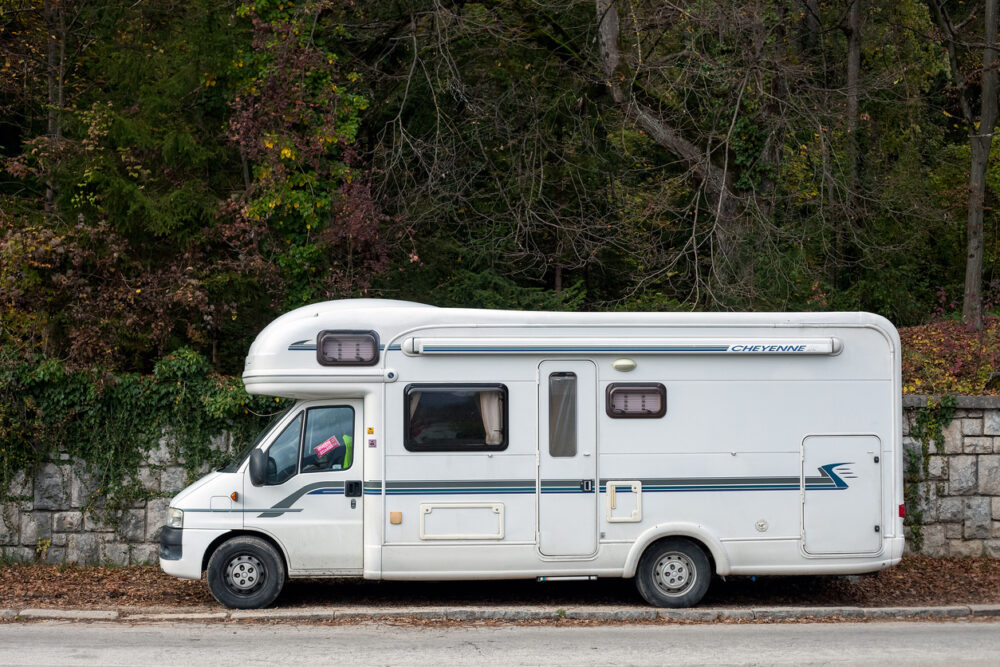
Living in your vehicle often means living in a legal gray area. In many places, it’s technically illegal to sleep in your car overnight, even if you’re parked safely and causing no harm. Laws vary wildly from town to town, and enforcement can be unpredictable—sometimes you’re ignored, sometimes you’re ticketed, fined, or even towed without warning.
For van dwellers, a simple misunderstanding or bad luck can snowball fast. Losing your parking spot can mean losing everything you own in a single night. And fighting back is hard when you don’t have a permanent address or legal support. The system isn’t built to protect nomads—it’s built to push them out of sight. Living on the road means knowing that at any moment, everything could change with the wrong knock on your window.
11. Mental health struggles get heavier with no stable ground.
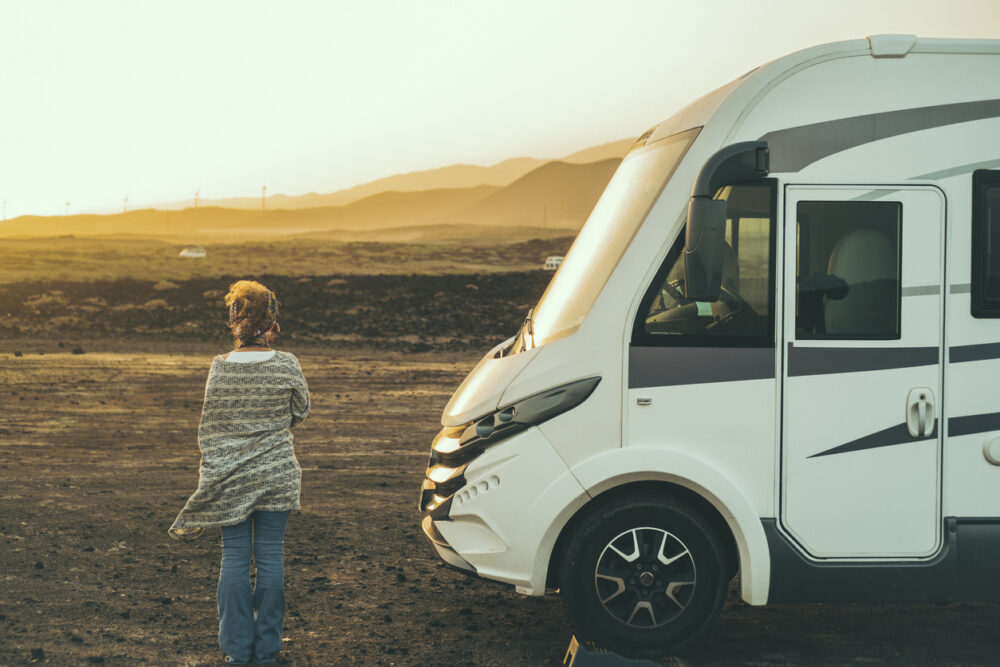
Even if you start van life in a good headspace, the constant instability takes a toll. Anxiety about money, safety, weather, breakdowns, and isolation piles up day after day.
Depression can sneak in under the guise of fatigue. Stress becomes your permanent passenger, even on the best drives.
Without a solid home base or regular support network, getting help feels almost impossible. Therapy, consistent medication, even just having a trusted doctor nearby—all of it becomes ten times harder to manage. And when every day is about meeting basic survival needs, emotional wellness often gets pushed to the bottom of the list. On the surface, van life looks like an escape. Underneath, it can magnify every struggle you thought you left behind.
12. Physical exhaustion becomes the default setting.
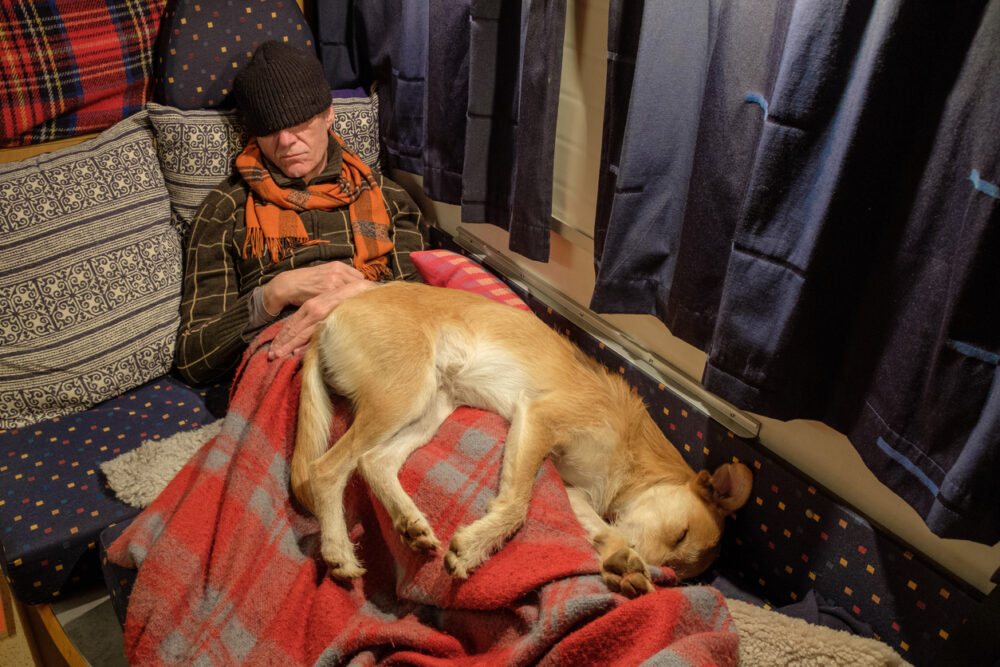
Living on the road demands constant effort. Moving between towns, finding safe places to park, chasing good weather, finding food, managing repairs, working odd jobs—it’s a nonstop hustle. There are no true “days off” when your entire life depends on staying two steps ahead of breakdowns, burnout, and bad luck.
Even things that sound simple, like setting up a sleeping area or cooking a meal, take more work when you’re living out of a vehicle. Every task demands more time, more energy, more planning. Over time, that constant low-grade exhaustion sinks into your bones. You don’t realize how tired you are until you stop—and stopping feels like a luxury you can’t afford. Van life doesn’t run on wanderlust alone. It runs on grit, hustle, and a body that’s doing everything it can to keep up.
13. Freedom starts to feel like another word for abandonment.
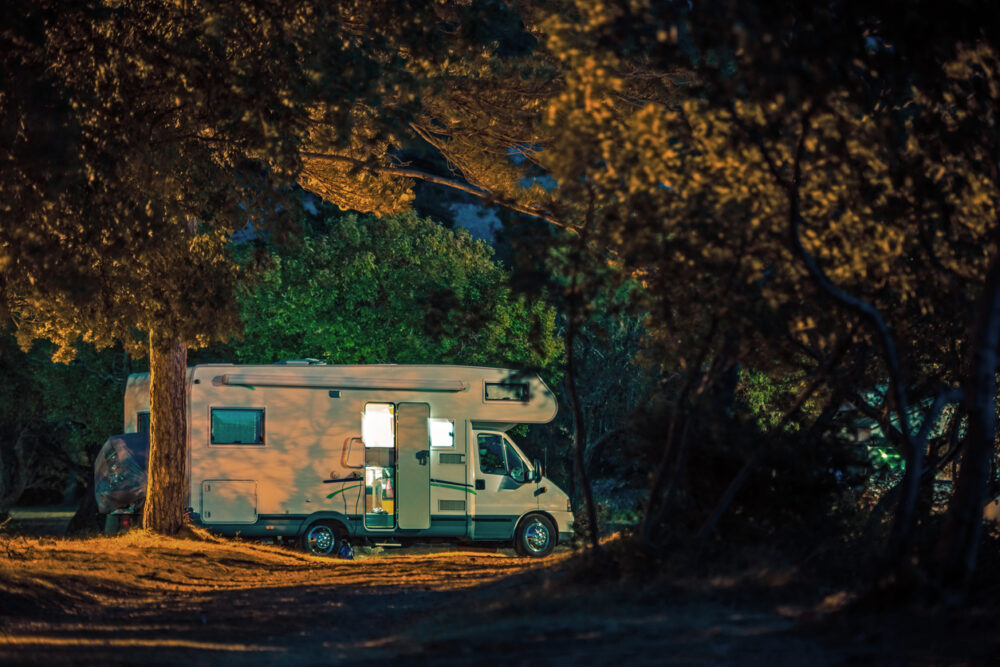
At first, van life feels like taking control. You’re escaping the system, refusing to play by impossible rules. But after months or years on the road, it can start to feel less like freedom and more like the world gave up on you.
Affordable housing, reliable healthcare, a stable safety net—they’re not supposed to be luxury items. They’re supposed to be basic rights. When you’re out there hustling for survival, sleeping in parking lots, getting hassled by cops, dodging storms, and rationing gas money, it’s hard not to wonder if “freedom” is just the polite word society uses to excuse letting people slip through the cracks.
Van life can be beautiful, but for a lot of people, it’s not the dream. It’s the last option left when everything else gets too expensive to hold onto.
